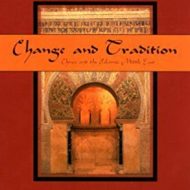Something I’ve been working on throughout our engagement with Ha Jin’s “The Bridegroom” is attempting to separate the author’s view of citizenship and life in China from what in reality goes on there. I find myself necessarily aware of sentiment that flatters Americans’ sense of freedom and independence, which, when spurred by contrast against a supposedly authoritarian, dystopian Other, seems to imbue people with a sense of patriotism and undercurrents of antagonism to various means of governance pursued by other nations, and exaggeration of their shortcomings. I fear taking Ha Jin’s fiction for more than it’s worth when forming a nuanced opinion of the goings-on in a real, living nation on the other side of the Pacific.
In the end, what can we take as representative portrayals of life in any place outside of America? I can’t determine how much I personally can heed of any particular piece of media without avoiding ideologically tainted images of reality. Media that flatters the contemporary centers of power (whose principles are heavily ingrained within the collective American consciousness for reasons I’ll leave up to you) is more likely to be popular within a particular location. With this in mind, can I take this popular work of fiction at face value? Ending with questions is trite, but this is one thing I’ve found myself unable to settle – to what extent is Ha Jin’s apparent emphasis on Chinese material hardship and authoritarianism reliable, and how can I be sure?

Great questions to end with, if you ask me!